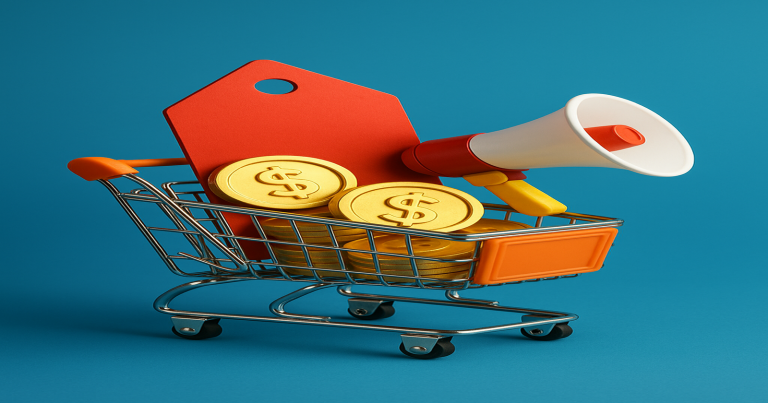Sales promotion is among the class of powerful weapons available today in the world of marketing aimed at heightening short-term sales and increasing a brand’s visibility. Whether associated with a time-limited percentage discount, loud contest, or free sample, it tricks consumers into a much-needed frenzy and feeds into activity. All these actions are prompted by short-term revenue and strategic long-term loyalty to the brand. That differs from businesses using sales promotions to create engagement, differentiate themselves from others, and improve customer experience. This guide explores definitions, types, their importance, and real-world examples of effective sales promotion strategies, promising much better results for your business and market presence.
What is Sales Promotion?
Sales promotion is generally called a necklace containing gems in tactics that help provoke quick and vigorous action from a customer. Such actions lead to immediate or fairly quick purchases or increased interaction with the particular brand. The target is that there should be additional value to a product or service, albeit temporary, to spur potential buyers into a debt-creating purchase decision. It works by using psychological triggers like urgency, scarcity, and reward. Sales promos are usually short-term strategies presented against advertising and digital marketing activities. Unlike conventional branding activities, which take time to produce results, sales promotions immediately quicken the buying behaviour. The promotion can be directed towards two customers: consumers ( consumer promotions) and business intermediaries (trade promotions). Big or small, sales promotion is a common denominator in the overall marketing puzzle.
Types of Sales Promotion
Promotions can broadly be classified by how they reach target audiences into two categories: consumer sales promotions and trade sales promotions. They deploy various tools and techniques to trigger purchase decisions within customers or channel partners.

Consumer Sales Promotion:
They direct their promotions toward end consumers in hopes of stimulating impulse purchases, promoting repeat purchases, or altering brand preferences. These are overt in intent and are aimed at delivering value rapidly.
Discounts and Price-Off Offers
This is one of the most popular sales promotion tools. Temporarily discounting a price encourages rapid product choice for the buyer and gives an edge over competitors at the point of sale. They work well during the festive season or end-of-season sales.
Coupons and Digital Vouchers
Coupons give cash into customers’ hands through discounts on future purchases, and they can be distributed both online and offline. In e-commerce, couponing, especially using digital coupon codes, is widespread to facilitate campaign performance tracking. They incentivise customers to come back and help secure customer retention.
Free Samples
Free samples for testing also serve to market a product further. Samples are particularly effective during a new product’s launch or when entering new markets. Consumers purchasing products they have tested have increased their purchase confidence. Such industries typically require consumer confidence, mainly in food, skin, and personal care products.
Contests, Giveaways, and Sweepstakes
To stir interest and get people talking, brands sometimes put together contests. Participants usually work for a prize. This would mean more shares for the brand on social media and more traffic for its website. These promotions create interaction, promote brand awareness, and sometimes go viral, thus giving a highly positive return on investment for a small expenditure.
Loyalty and Reward Programs
Rewarding customers for repeat purchases creates loyalty to a brand. The programs track customer activity and provides them with points, cash back, or exclusive discounts. Companies like Starbucks and Amazon Prime have used loyalty programs to develop a strong customer base.
Trade Sales Promotion
Trade promotions aim to persuade retailers, wholesalers, and distributors to carry additional stock, display the products more noticeably, or actively push sales. These strategies take care of channel management and market penetration.
Trade Allowances and Bulk Discounts
Discounts are offered by manufacturers to retailers who purchase a product in bulk. The discount reduces the retailer’s inventory risk and encourages him to stock more of the promoted product. This type of buying gives more visibility and, often, more push marketing at the point of sale.
Point-of-Purchase (POP) Displays
This is promotional material set up in high-traffic areas of retail outlets. Captivating signage, standees, and branded kiosks catch consumers’ attention and promote impulse buying, particularly in FMCG sectors such as beverages and snacks.
Dealer Contests and Incentives
Retailers or sales staff are awarded based on sales. This motivation induces trade partners to promote the brand actively in a vis-à-vis competition. Incentives can be in the form of cash, trips overseas, or high-value gifts.
Trade Shows and Business Events
Trade fairs allow companies to show their offerings to prospective resellers or partners. Trade fairs are an excellent opportunity for building B2B relationships for new retail channels. They also provide a network for branding.
Co-operative Advertising Support
Manufacturers will sometimes cover a portion of a retailer’s advertising expenses. It provides a balanced brand message in advertisements and allows small retailers to run local campaigns they could not have afforded otherwise.
Sales Promotion for Business Development
Sales promotions are not just a device for short-term sales but a long-term brand-building device since they factor very much in consumer psychology, market competitiveness, and inventory control.
Raise Immediate Sales and Income
Sales promotion has one of its greatest strengths in influencing sales in the short run. It is like an impulse buying mechanism where, at a particular time, paired with a specific promotion, the consumer just buys. The time-limited offers or blitz sales capitalize on the fear of missing out (FOMO) and generate a sense of immediate urgency.
Attracts New Customers
Sales promotions are an excellent way for new customers to have their first experiences with a brand or product line. Free samples, discounts, or contests lower the entry barrier to the point where a new customer dares to give the product a first try. If satisfied, the new users of the product can then be turned into repeat buyers.
Increase Brand Visibility and Recall
This is how advertising and social media sharing or display advertising accrue visibility to a brand. The more the consumer interacts with a promotion, the more the recall for the brand, thus making promotions work towards long-term marketing effects.
Extra Engagement and Loyalty
Gamified promotions, e.g. quizzes, loyalty points, and referral rewards, keep the customers engaged with the brand. Valued and rewarded, they motivate their long-term loyalty. Such loyal customers would now become brand ambassadors, positively marketing the business through word-of-mouth promotions.
Disposal of Surplus Inventories and Wastages
Clearing sales might be best employed to dispose of stocks that have become old-fashioned and are in surplus. Instead of just writing off the unsold stocks, companies can sell the same through bundled deals or clearance discounts. It will ensure better warehouse efficiency and free up resources for new developments.
Example of Coca-Cola’s Share a Coke Campaign
The Share a Coke campaign from Coca-Cola has proven to be a mega sales promotion in the modern marketing paradigm. Instead of the classic logo, common first names were printed onto the bottles to entice consumers into searching for bottles with their names, buying them, and sharing a Coke. This personal touch gave rise to an international trend on social media whereby individuals who purchase the products post pictures of themselves with the product, tagging their friends in them.
The emotional and personal relationship deepened with consumer engagement. Thus, Coca-Cola reported that sales grew by 7% during the campaign, which shows how personalising marketing leads to better sales revenue. It has generated millions of online impressions, strengthening the brand through social media. This is a perfect example of how sales promotion can bring together emotional and monetary benefits.
What is Sales Promotion FAQs
Q1. What is a sales promotion in marketing?
It refers to a short-term stimulus for consumption or purchase, intended to boost sales or distribution of a product, where usually added value is given to direct action by the customer.
Q2. What are some good sales promotion examples?
Good sales promotions include BOGO, instant discount for a limited period, loyalty rewards, free samples, referral bonuses, and seasonal giveaways.
Q3. How is sales promotion different from advertising?
While advertising builds long-term brand image and awareness, sales promotion focuses on immediate action, such as purchasing or trying. It is typically time-sensitive and incentive-driven.
Q4. What are the key types of sales promotions?
The two main types are Consumer Sales Promotions (discounts, samples, contests) and Trade Sales Promotions (dealer incentives, trade shows, POP displays).
Q5. Why is sales promotion important for business growth?
It increases short-term revenue, drives customer acquisition, clears inventory, improves brand recall, and supports loyalty programs—all contributing to overall business performance.


